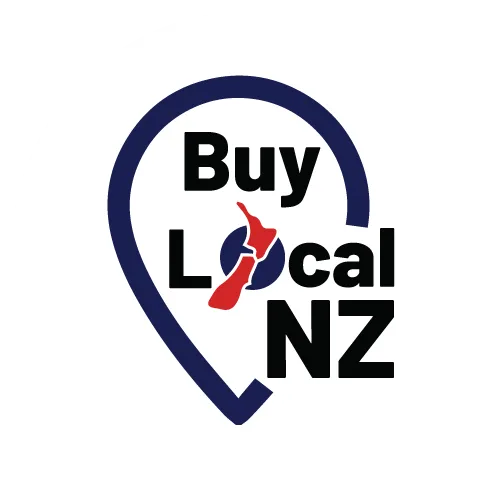
Win Featured Snippets: Master Your Regional SEO
Win Featured Snippets: Master Your Regional SEO
You'll boost your chances of winning featured snippets by tailoring your SEO strategy to specific regions. Start by implementing local business schema markup, conducting location-specific keyword research, and creating content that resonates with regional audiences. Optimize for mobile users, build local authority through citations and reviews, and track your performance across different geographic areas. These proven tactics will help you capture position zero and dominate local search results in your target markets.
Key Points
- Analyze regional search patterns and tailor featured snippet formats to match local user preferences and behaviors for maximum visibility.
- Implement comprehensive LocalBusiness schema markup with accurate GeoCoordinates and OpeningHours to enhance regional search presence.
- Create region-specific content incorporating local keywords, landmarks, and community events to increase featured snippet capture rates.
- Track featured snippet performance across different locations using tools like SEMrush to identify regional opportunities and gaps.
- A/B test different snippet formats and continuously update content to reflect geographic-specific trends and search patterns.
Understanding Featured Snippets and Regional Search Impact
While featured snippets dominate the top of search results, their impact varies considerably by region and search intent. You'll find that search behaviors differ across cities, states, and countries, creating unique opportunities to capture position zero in your target markets.
Featured snippets present diverse regional opportunities, as search behaviors and intent vary significantly across geographical boundaries and cultural landscapes.
Break free from one-size-fits-all SEO strategies by analyzing regional search patterns. Your content needs to address local nuances, from language variations to cultural preferences.
Test different snippet formats - lists, paragraphs, or tables - based on what resonates in each region.
Track your featured snippet performance across locations to identify where you're making the strongest impact and which areas need optimization.
Local Business Schema Markup for Enhanced Visibility
Beyond featured snippets, schema markup represents your next powerful tool for boosting regional visibility. You'll empower search engines to understand your business context while gaining control over how your information appears in search results.
| Schema Type | Purpose | Impact |
|---|---|---|
| LocalBusiness | Core business info | Enhanced map listings |
| GeoCoordinates | Location precision | Better local targeting |
| OpeningHours | Operating schedule | Real-time relevance |
| Review | Customer feedback | Trust signals |
| PriceRange | Cost transparency | Qualified traffic |
Implement schema markup to break free from generic listings and stand out in your local market. Your structured data tells a compelling story about your business, making it impossible for search engines to overlook your relevance to regional searches.
Location-Specific Keyword Research Strategies
To dominate your local market, you'll need to master the art of location-specific keyword research. Break free from generic search terms by combining your core services with local modifiers like neighborhoods, landmarks, and colloquial area names.
Leverage Google's Autocomplete and "People Also Ask" features to uncover how locals actually search. Don't limit yourself to city names - explore county, district, and region-specific variations.
Tools like Google Trends can reveal seasonal patterns and geographic preferences unique to your area.
Track your competitors' local keyword strategies, but forge your own path by identifying untapped local search opportunities.
Creating Region-Targeted Content That Ranks
Once you've identified your region-specific keywords, it's time to create content that genuinely resonates with your local audience. Break free from generic content templates and create authentic stories that capture your region's unique character.
| Content Element | Regional Optimization |
|---|---|
| Headlines | Include city/state names |
| Images | Use local landmarks |
| Stories | Share community events |
| Citations | Reference local sources |
Empower your content by addressing local pain points, celebrating regional achievements, and highlighting neighborhood insights that national competitors can't match. Integrate location-specific terminology naturally, and don't forget to optimize meta descriptions and image alt texts with regional context.
Mobile Optimization for Local Search Success
Since most local searches happen on mobile devices, optimizing your regional website for smartphones isn't optional - it's essential.
Break free from slow loading times by compressing images, minimizing code, and leveraging browser caching. Your site's design should adapt fluidly across all screen sizes, with easy-to-tap buttons and readable text.
Speed and adaptability are the cornerstones of mobile optimization - compress, minimize, and design for seamless user experiences.
Make sure your contact information, address, and call-to-action buttons are prominent and thumb-friendly. Enable click-to-call functionality and integrate with map applications.
Speed up your checkout process by implementing digital wallets and autofill capabilities. Remember, mobile users want instant results - give them the freedom to connect with your business effortlessly.
Building Local Authority Through Citations and Reviews
You'll need to guarantee your business information appears consistently across all online platforms to build strong local search authority.
While managing citations on major directories like Google Business Profile, Bing Places, and Yelp should be your priority, don't overlook industry-specific platforms that can boost your regional visibility.
Customer reviews and testimonials serve as powerful trust signals, helping you establish credibility with both search engines and potential clients in your local market.
Optimize Citation Accuracy Online
The foundation of successful regional SEO lies in maintaining accurate and consistent business citations across the web.
Take control of your digital presence by regularly auditing your NAP (Name, Address, Phone) information on major platforms like Google Business Profile, Yelp, and industry directories.
Don't let outdated listings hold you back. Use citation management tools to track and update your business information efficiently.
Correct any discrepancies immediately, as inconsistent citations can damage your local search rankings.
Break free from the confusion by establishing a single source of truth for your business data and systematically aligning all online listings with it.
Local Directories Matter Most
While many business owners focus solely on Google Business Profile, local directories serve as powerful trust signals for search engines and potential customers alike.
Don't limit yourself to just one platform when you can leverage multiple authoritative directories to boost your local presence.
Target directories like Yelp, Yellow Pages, BBB, and industry-specific platforms where your audience actively searches.
Claim and verify each listing, ensuring consistent NAP (Name, Address, Phone) information across all platforms.
You'll establish stronger local relevance and build trust with both search engines and potential customers through extensive directory coverage.
Building Trust Through Endorsements
Trust serves as the cornerstone of local business success, making customer endorsements and citations essential for regional SEO dominance. You'll boost your local authority by actively cultivating positive reviews and managing your online reputation across platforms that matter to your community.
- Encourage satisfied customers to share their experiences on Google Business Profile, Yelp, and industry-specific review sites.
- Respond promptly to both positive and negative reviews, showing your commitment to customer satisfaction.
- Build citations through chamber of commerce listings, local business associations, and community partnerships.
Break free from traditional marketing constraints by leveraging authentic customer voices to amplify your regional presence.
Measuring Regional SEO Performance and Snippet Success
You'll need robust measurement tools to monitor your rankings across specific geographic areas and track how well you're performing in local search results.
Keep a close eye on your featured snippet capture rate to understand how effectively you're securing prime visibility in regional search queries.
Track Specific Location Rankings
To accurately gauge your regional SEO success, monitoring location-specific rankings is essential.
You'll need to track how your content performs in different geographic areas to understand your regional impact and adjust your strategy accordingly. Break free from generic ranking reports and embrace location-specific data to dominate your target markets.
- Use tools like BrightLocal or Local Falcon to monitor rankings across multiple zip codes and cities.
- Set up Google Business Profile tracking to measure local pack performance and engagement.
- Implement geo-modified keyword tracking to understand how you rank for location-specific search terms in different areas.
Measure Snippet Capture Rate
Beyond tracking local rankings, measuring your snippet capture rate reveals how effectively your content appears in featured snippets and rich results across different regions.
Monitor what percentage of your target keywords earn featured snippets in each location and track which competitors are winning them in areas where you're not.
Use tools like SEMrush or Ahrefs to analyze your snippet opportunities by region.
Break down your capture rate by content type - tables, lists, paragraphs, or videos.
This data helps you identify which formats resonate best in specific markets and adapt your content strategy accordingly.
Analyze Local Market Share
Market dominance in regional SEO requires a clear understanding of your local search visibility compared to competitors.
To gain true market freedom and break away from competitors, you'll need to conduct thorough local share analysis using advanced SEO tools and metrics.
- Track your business's visibility score across local map packs, comparing your ranking distribution against top local competitors.
- Monitor share of voice for targeted regional keywords, measuring organic traffic percentage versus market competitors.
- Analyze competitor backlink profiles within your service area to identify untapped local linking opportunities.
Take control of your regional presence by leveraging these insights to identify gaps and seize market opportunities.
FAQs
How Long Does It Take for Featured Snippets to Appear After Optimization?
You won't get instant results with featured snippets - they typically take 3-6 months to appear after optimization, but this timeline can vary based on your site's authority and content quality.
Can Competitors Copy My Featured Snippet Strategy for Their Regional Targeting?
Perceptive players can study your snippet success, but you'll maintain advantage through consistent content creation, local expertise, and authentic regional insights that competitors can't quickly copy or convincingly replicate.
Do Seasonal Changes Affect Regional Featured Snippet Rankings?
Yes, your featured snippet rankings will fluctuate with seasonal trends, as search patterns shift based on regional weather, events, and cultural moments. Stay ahead by adjusting content to match these cyclical changes.
Should I Create Separate Websites for Different Regional Target Markets?
You don't need separate websites; instead, create dedicated location-specific pages on your main site. This helps maintain domain authority while letting you customize content for each regional market you're targeting.
How Often Should Regional Content Be Updated to Maintain Featured Snippets?
You'll want to update your regional content at least monthly, monitoring competitors' featured snippets and local trends. Make quick adjustments when rankings drop or when significant local events occur.
In Summary
You're now equipped to dominate regional search results and win those coveted featured snippets. With 46% of all Google searches having local intent, your optimized content and schema markup can capture valuable SERP real estate. Keep monitoring your performance metrics, adjusting your strategy based on regional insights, and maintaining strong local citations. By implementing these targeted approaches, you'll stay ahead in your local market while maximizing your featured snippet opportunities.

